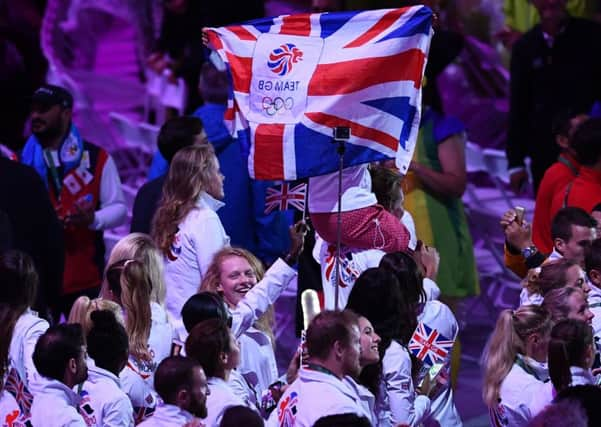Leaders: Olympic victory is reward enough for medal winners


It would be difficult to place a formal cap on the number of British Olympians recognised in the Honours list.
Prime Minister Theresa May has spoken of Team GB’s “amazing fortnight” in Brazil, where they came second in the medals table, and confirmed there will be no limit put on honours for athletes and coaches.
Advertisement
Hide AdAdvertisement
Hide AdThis is sensible, because is hard enough working out what level of achievement is to be rewarded, without having an arbitrary limit placed on the tally.
One person who must surely be in line for recognition is Jason Kenny, who equalled Chris Hoy’s British record of six Olympic golds.
Indeed, of Britain’s top five most successful male Olympians, Kenny is the only one who is not a “Sir”. At the age of 28, he seems young for such a title, but how could he be denied the same accolade as the others on that list?
There are many more who also have a strong claim for an honour. But it is here we encounter a problem. There are far too many who have now made the grade, which is the very reason that it has been necessary to make clear there will not be a cap.
British Olympic success has grown to such an extent that the honours system does not really recognise the most exceptional any longer. It could be said that the granting of an honour is now so widespread in sport that it has little meaning any longer.
It may make some of us begin to ask: “What’s the point?” But the precedent has been set, so the process of rewarding those who have done so well in Rio this month cannot be halted now.
However, it is still legitimate to ask if it is necessary to honour our Olympians. They are rewarded at the Games and there is no danger of them not being feted at the time and probably for the rest of their lives.
And what of those from years past who gave their all at the Olympic Games, but fell short because they competed in an era when there was no proper funding or support? What makes the current team members more worthy of honour than those who were just as talented who went before them?
Advertisement
Hide AdAdvertisement
Hide AdThe problem is really with the honours system. It is outdated, and as we have seen here, compromised by precedent – as well as being open to abuse as we saw in David Cameron’s outgoing honours list, with hairdressers and PRs rewarded for simply doing their jobs.
Sport brings its own rewards, and in normal circumstances there should be no requirement to automatically bestow an additional honour on those who succeed in their fields, where public recognition is immediate.
But for now, we have to honour our homecoming Olympians in the way that London’s heroes were recognised four years ago. And until the honours system is reformed (and that is long overdue), we can expect the post-Olympic procession to Buckingham Place to become a fixture in the sporting calendar.
Closing the gender pay packet gap
Many workplaces may be striving towards a gender-balanced workforce, but the amount men and women take home in their pay packets can be far from equal.
While it is encouraging that the hourly pay gap rate is diminishing over the long term, as revealed by research from the Institute for Fiscal Studies, the overall picture remains depressing.
Women still lose out in the workplace when they have children, missing out on promotions which means that their salaries fall behind men.
The simple explanation, offered by those who have no problem with the gap – usually those without children or those whose partners carry out the lion’s share of childcare – is that women with less experience cannot expect to climb the career ladder as fast as men, with the more experienced job candidate more likely to get the job. But under that analysis, women are always going to be discriminated against.
We may never get to parity but the finding that women’s pay is now 33 per cent less than men 12 years after giving birth to their first child is unacceptable.
Advertisement
Hide AdAdvertisement
Hide AdNor is it just lower-paid jobs that are affected, as the findings show that the gap between higher-educated men and women has not closed in 20 years.
Finding an answer is a complicated matter, but we have to try harder to close the gap. A form of structured positive discrimination would certainly provoke debate.
To start with, we have to recognise the problem exists, and understand its consequences. It is fundamentally wrong that women are penalised because of childbirth.